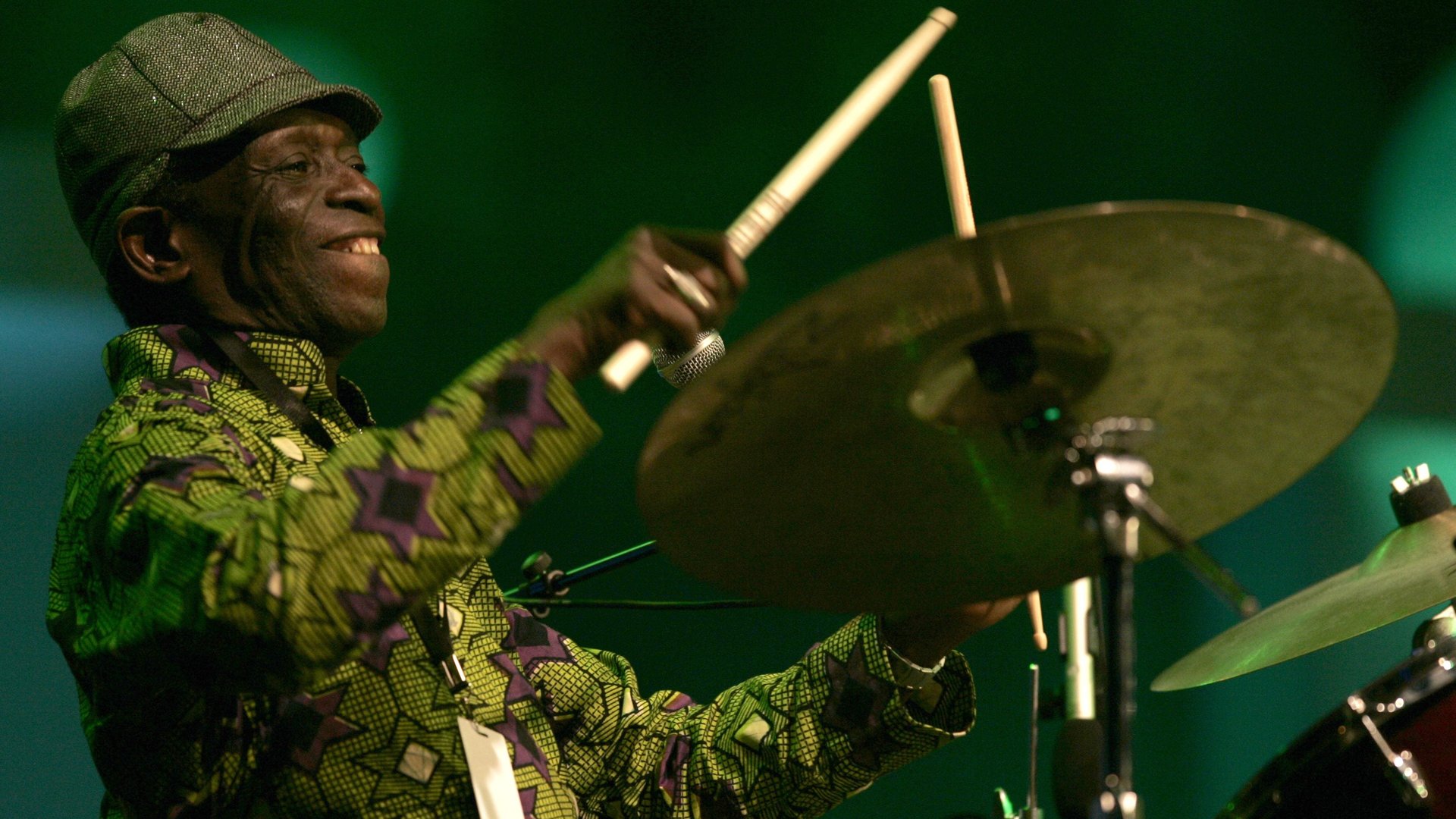Nigerian Afrobeat pioneer Tony Allen has died
Tony Allen has died at 79 in Paris according to reports. Allen was the drummer behind the syncopated drumming that breathed rhythmic life into Fela Kuti’s Afrobeat genre blend of big band jazz, funk and traditional African music formats.


Tony Allen has died at 79 in Paris according to reports. Allen was the drummer behind the syncopated drumming that breathed rhythmic life into Fela Kuti’s Afrobeat genre blend of big band jazz, funk and traditional African music formats.
His manager Eric Trosset told AFP Allen’s death had been sudden but not believed to be linked to coronavirus. “We don’t know the exact cause of death. He was in great shape, it was quite sudden. I spoke to him at 1:00 pm (1100 GMT), then two hours later he was sick and taken to Pompidou hospital where he died.”
Tony Oladipo Allen was born to a middle class Lagos family and taught himself the drums and developed his own unique style by obsessing over jazz drummer heroes from the bebop era including Art Blakey and Max Roach. In the early 1960s he became a regular on the Lagos club circuit which was dominated by the West African highlife sound.
It was during this period he first met Fela Ransome Kuti, who was developing a highlife band called the Koola Lobitos. By 1968/69 that band had evolved into Fela’s groundbreaking Afrika 70, led by Allen on drums with Lekan Animashaun on baritone saxophone and Tunde Williams on trumpet.
Fela and the Afrika 70 had developed a new sound called “Afrobeat” with strong jazz roots, African highlife based on the signature syncopated funk drumming Allen perfected over arguably Fela’s most prolific artistic period.
Allen’s distinctive drumming sound can be heard on hits like “Colonial Mentality”, “Zombie” and “Gentleman” among others.
But while this period was artistically fulfilling for both Fela and Allen, it was also one of much turmoil and upheaval as the increasingly political lyrics of many of these songs meant Fela and the band became a target of the military government of the day. Police raids at the band’s Lagos nightclub, The Shrine, became a regular, disruptive feature even as their hits grew in popularity. Fela also lived a chaotic, bohemian existence which sometimes meant financial arrangements were often not as professional as they could have been for band members.
Things came to a head in 1978 on a financially ill-fated tour which took the 40-piece band to the West Berlin Jazz Festival. Fela says he was paid $100,000 but by the time he’d covered all the band’s travel and lodge expenses the tour was running at a loss. Allen had had enough and it was the last time he played with the band. The album “Vagabonds in Power (VIP)” was recorded live at the festival.
Allen went on to release a string of solo albums and numerous collaborations. He told British newspaper the Guardian of his first post-Fela album, “No Accommodation”:
I decided to do four tracks on the record which you would consider Afrobeat—up until then, Fela would do two tracks maximum on a record which were Afrobeat, but I wanted to give people more. Our approach was inspired by James Brown and his really long versions of songs. We looked at that and thought: “Why can’t we do it?” and created these songs that last God knows how many minutes. With Afrobeat, you need to respect the amount of time it takes to grab you. You can’t write Afrobeat for radio because they edit and edit and edit until the music is dead.
While he never quite reached the commercial highs or political influence of his friend, he soon became a cultural icon of modern African music particularly after the death of Fela Kuti in 1997. Allen was also a huge critics’ favorite for continuing to push musical boundaries with his unique drumming sound late into his life.
In 2010 he collaborated with Blur’s Damon Albarn and Red Hot Chili Peppers bassist Flea in the band Rocket Juice & the Moon and in 2014, he was a member of the super-group collaboration with Albarn, Paul Simonon (the Clash) and Simon Tong (the Verve) on the The Good, The Bad and The Queen album project. He recently returned to his jazz roots by signing with iconic jazz label Blue Note and recorded two albums The Source and a tribute to Blue Note drummer Art Blakey.
This year he also released Rejoice, an album of recently completed recordings with the late South African trumpeter Hugh Masakela.
Sign up to the Quartz Africa Weekly Brief here for news and analysis on African business, tech and innovation in your inbox